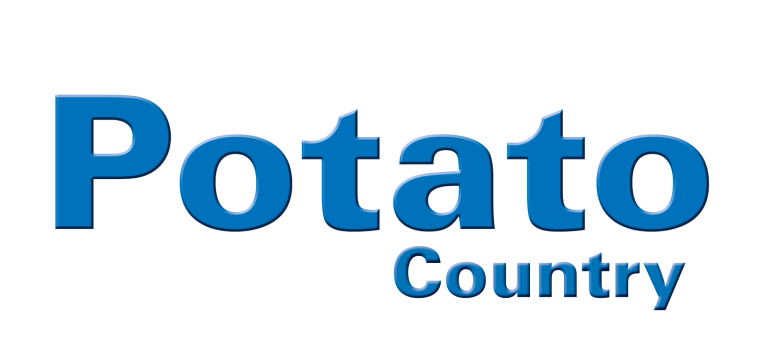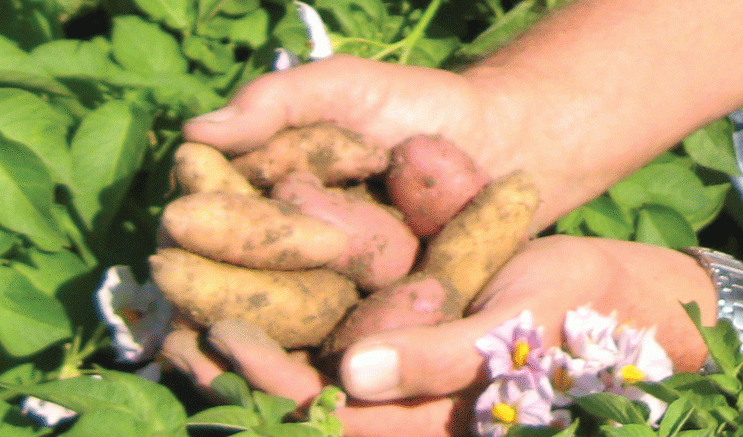By Kanchan Koya
What if I told you that your kid, and even you, could theoretically live on potatoes and be just fine?*
But aren’t potatoes empty calories? Carb heavy? Boring? Devoid of nutrition? A mere filler and, even worse, a fattening food?
Wrong. Wrong. Wrong.
I must admit I’ve been slightly scared of potatoes for most of my adult life. Having a tendency to gain weight easily, I think of potatoes as a food only kids or the naturally skinny can routinely enjoy. I occasionally indulge in French fries, mashed or roasted potatoes (with smoked paprika mmmm) but they have never been an integral part of my diet. Until now.
Life and perspectives change when you have a kid and I’m not just talking about lack of sleep and the impossibility of an interruption-free conversation (I love you toddler). I’m talking about a research-led makeover of the family table. Enter the humble yet powerful potato.
I always knew kids needed more carbohydrates than adults. Their brains are growing at a rapid pace and the best fuel for the brain is carbohydrate (not protein or fat). So carbs are king, especially for kids, and I am a passionate proponent of nutritious, preferably unprocessed carbs like whole grains, rice, beans, lentils and potatoes. What I didn’t realise until I did a deep dive into the land of the spud is that potatoes are not merely carbohydrates. They are a nutrient-dense food our hunter-gatherer ancestors enjoyed (when their foraging was successful) and that many a healthy ancient culture has subsisted on.
Aside from being a good source of energy and carbohydrates, here are 6 solid reasons why I proclaim the potato a kid superfood.
1) Potatoes contain highly absorbable minerals
Potatoes contain critical minerals – potassium, magnesium, copper, calcium, phosphorus, zinc and iron – all important for pivotal bodily functions, not least for growing kids**. Importantly, the low phytic acid of potatoes helps these minerals be absorbed optimally otherwise phytic acid can work as an anti-nutrient and prevent their absorption. This makes potatoes considerably more nutritious and mineral-rich than the typical carb options on our kids’ plates like rice, pasta and white flour.
2) Potatoes are an excellent source of vitamin C
Yes, I was surprised too! Potatoes contain significant amounts of vitamin C. One medium potato has about 40 mg of vitamin C. Despite the 30% that is lost during the cooking process, the remaining 15 mg is essentially the daily recommended intake for 1-3 year olds! The next time a cold hits the household, pull out the potatoes, not just the OJ.
3) Potatoes are a good source of fiber
Potatoes are a good source of fiber compared to their simpler carbohydrate counterparts like rice, flour and sugar. The skin contains twice the fiber as the flesh – one baked potato with the skin has the same amount of fiber as a banana or an apple – about 3 grams, or 12% of the daily fiber need of 1-3 year olds. So why the fuss around fiber anyway? Fiber helps our bodies feel satisfied, may help reduce bad cholesterol, lowers blood sugar spikes (long term, continuous spikes can lead to type II diabetes), ensures regular digestion and prevents constipation. Sadly, most adults in the West, let alone kids, aren’t getting adequate fiber these days. We need to do better and the kid-friendly spud can help.
4) Potatoes are brimming with important B vitamins
The B complex family of vitamins consists of 13 members and is extremely important for cell renewal, production of DNA and protein, conversion of glucose into energy and the synthesis of mood-boosting brain chemicals like serotonin (take that threenager mood swing), among other functions. Potatoes bring a significant amount of vitamin B6 to the table as well as niacin, folate and choline, the last of which is critical for brain function, such an important aspect of a kid’s development.
5) Potatoes have complete protein
Yes you heard right. Potatoes have protein. A medium potato has about 4g of protein or 25% of the recommended daily intake for 1-3 year olds. More importantly, potato protein is complete in that it contains all 9 essential amino acids, albeit 3 of them (tryptophan, methionine and cysteine) in low amounts. This can be corrected by serving the potato with dairy like butter or cheese or a dollop of Greek yoghurt. If you’re raising a vegetarian, you can think of the potato as another protein-rich option in addition to beans, lentils, whole grains, dairy and soy.
6) Potatoes contain ‘retrograde resistant starch’ to fuel our friendly gut bacteria
Everyone talks about probiotics or the good bugs in our guts but equally important to bear in mind are PREbiotics or the fuel for those very bugs. Potatoes that are cooked and cooled contain resistant starch, in that, it is resistant to digestion by us but feeds the good bacteria in our colon. This is such a cutting edge and exciting field of research that I am going to devote next week’s post to the ‘Resistant Starch in Cooked and Cooled Potatoes’ (nerd alert) with some yummy recipes to boot. Until then, suffice to say that potatoes when cooked and cooled are the ideal fuel for our bacterial buddies.
The ultimate reason I personally LOVE the potato (aside from all the nutritional goodness) is that it’s the perfect canvas for herbs and spices! Paprika, turmeric, cumin, coriander, rosemary, garlic, thyme and pepper all have an opportunity to shine atop the humble tuber making it such fun to play with in the kitchen.
A note on potato skins
Some nutrients are enriched in potato skins (like iron) while others are more abundant in the flesh (potassium, magnesium). I like to mix things up, sometimes serving potatoes with the skin on (preferably organic) but mostly, peeling them. This is because skins also contain higher amounts of glycoalkaloids which are natural toxins designed to defend the potato from insects, animals and us and it’s a good idea to minimise our exposure to those.
*While people have demonstrated that they can live on potatoes with a little butter or milk for extended periods of time, I don’t by any means suggest you actually do so. Just like grandma said, diversity and moderation in diet are the key.
**Potassium supports heart health, regulates blood pressure and aids nerve impulses. Magnesium is an important player in over 300 chemical reactions in the body. It’s deficiency often results in those uncomfortable muscle cramps after too much physical activity but getting it naturally from foods requires awareness and a varied diet (other great sources are avocados and dark chocolate). Calcium and phosphorus are incredibly important for the formation of strong bones and teeth. Copper and iron work as a team to help the production of red blood cells. In fact, copper helps the body absorb iron better.
Originally published on Spice Spice Baby

